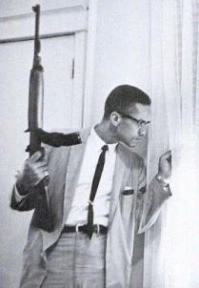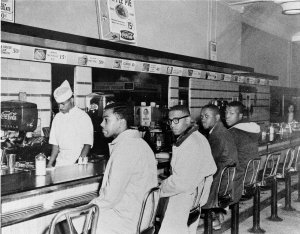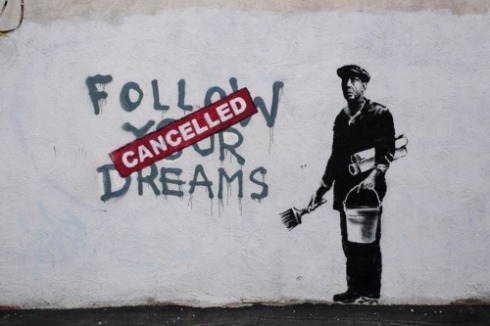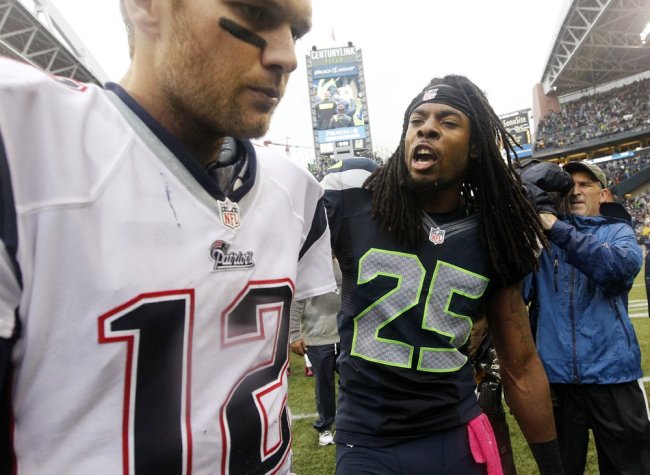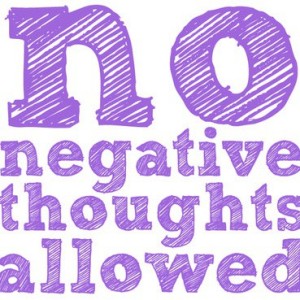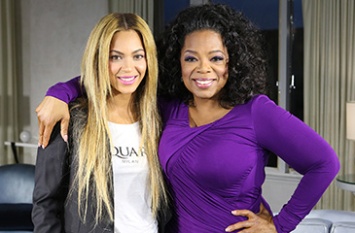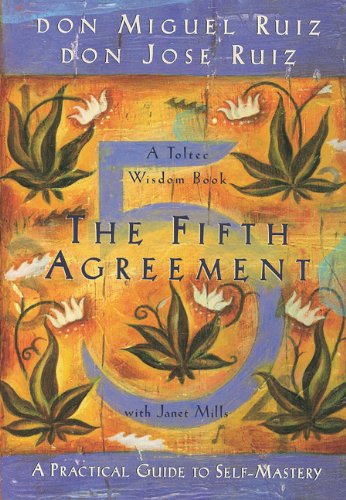
Check one, two. Check one, two. Sorry I have left you readers so long without a blog post. As a creator, sometimes you have to simply step back from your creativity and art, and live. The best content frequently derives from the lessons learned through simply living.
About a month ago, I read The Fifth Agreement by Don Miguel Ruiz, Don Ruiz, and Janet Mills. This book was unexpectedly very, very good. And I say unexpectedly, because it looks to be on some natural, spiritual stuff. I don’t typically read spiritual books, but this particular one was referred to me. Since reading this book, I have also read As A Man Thinkeths, and I am currently reading The Seven Spiritual Laws of Success. Some would even argue that my first book, My Flexibility Manifesto, was spiritual. The beauty of The Fifth Agreement is that it correlates and connects to those other books. So it is like learning a writing lesson in English class, then going to science class and using those writing skills taught in English, then working on your first draft in Social Studies class. There’s synergy there.
What this book makes me realize is that this society, which is created by man, is very distorted from the universe that God created. When God created this world and us, and the first man and woman existed, we began to create images…symbols. Every single day we see symbols. We see them daily in marketing.We see them in our text messages, social media, clothing, etc. Democracy is a symbol. Capitalism is a symbol. The American Dream is a symbol. College is a symbol. Everything is a symbol. The problem dwells in those symbols, also known as “symbology.” That symbolism is false. It distorts God’s message and our individual purpose in life. Because of the symbols in smart phones, social media, the news, magazines, music, and entertainment, many of us struggle to hear God’s voice. We ignore our intuition and continue to walk into dangerous circumstances whether that is a preventable, bad, romantic relationship or a job that we should have turned down. Throughout my life, I have chased the American Dream. Some may argue that I have achieved this dream, but it doesn’t feel very satisfying. There is something missing, but because I believed in this false symbol, I am too far in to escape. No one warned me that higher education came with debt. No one discussed the ebbs and flows of marriage. No one taught me the essential skills of effective parenting. I learned these things through trial and error. So what do I do now that I know these symbols are false?
What further threw me for a loop, as a writer and as an artist, I realize I am using these symbols. Perhaps the purpose of the book was to raise awareness. Now that I am aware of it, I have to decide what am I going to do next. As stated in the text, I had to reflect on my message. What message was I conveying in my art? What message was I conveying in my conversations?Even if I now know that capitalism is a false symbol, is it okay that I participate in this symbol if I am doing it for the right reasons?
Another key point I discovered from reading The Fifth Agreement is that it acknowledges none of us have the right religion. So it doesn’t matter if you are a Catholic, a Baptist, a Muslim, or a Mormon. It’s about our relationship with God, not our slight differences in beliefs and customs. Think about when you were a child. You enjoyed life. You played with everyone regardless of how fat they were or how poor they were. Children operate from a perspective of no filter. They “call it as they see it.” So if a kid calls you fat, you’re probably fat. If a kid calls you ugly, you’re probably ugly. As brainwashed adults, our goal to try to reach that childlike innocence and purity where it was about play, entertainment, creativity, and enjoying life. Adulthood strips us of our innocence. Those bills and direct deposits work collectively in destroying who we really are. We need to take the time to discover who we really are. We need to discover our purpose.
Speaking of purpose, I will not say that The Fifth Agreement contradicts Rick Warren’s Purpose Driven Life, because this is a spiritual book; that’s a Christian book. Rather than to dig into the differences; there are a lot of similarities between both books. In Warren’s work, he argues that our purpose is to love God, love our family, and to love others. And there are a million ways that we can love others and love God.That makes sense because there is God in us. So when I read the Fifth Agreement and it talks about recognizing our own divinity, I realize we are kings and queens. When I think back to this history of Africans, I realize that our history has been washed away unless you purposefully seek that knowledge. We are kings and queens of our own kingdom. It’s important that I have a purpose in my life. The Fifth Agreement advocates us to love ourselves. Before you can love someone else, you have to be able to love yourself. In summary, following these five agreements will lead to holistic success. Let’s look at each agreement in detail.
- Be impeccable with your word. Being impeccable with your word means that you respect yourself. If you respect yourself, you’re going to eat right, exercise, go to the doctor, go to the dentist, relax, have fun, and work hard. Of course you’re going to work hard, because you have goals. Being impeccable with your words means that you recognize the power of words. As a English teacher, writer, author, and advocate of language and communication, I live by the power of words. So it is imperative that I exemplify this agreement. By speaking with integrity, I will only use words that mean something. I will stand behind my words. There are so many people that make false promises and claim that they are doing this or that, but their actions show differently. I do not want to become that person. If I say I am going to do something, then I do it. Or perhaps, I don’t say anything, I let my actions speak for themselves. Also, being impeccable with your words means to not speak down on yourself or to gossip. Regarding the latter, I avoid eating lunch in the teacher’s lounge, because I do not agree with the gossip that takes place during that time. As I’ve matured, I have become more opinionated and steadfast in my beliefs and values. That has caused some friction between myself and others. Thus, for one reason or another, I genuinely do not like some people and some people probably do not like me. I am fine with that. However, I will not gossip about those people. If I say something behind someone’s back, I will say the exact words to that particular person’s face. I do not want any drama, but I am a man of my word. That’s integrity. More importantly, I will not speak down on myself. Recently, I met with my principal regarding my performance this past school year as an educator, co-worker, and leader. Overall, I did an excellent job, but my principal was unsure how I would take her criticism. She informed me that I was moody. I literally laughed when she said that, because she was 100 percent correct. I am moody. I am a lot of things that I am not proud of. As explained to my principal, I am my biggest critic as I know myself very, very well. And if you are like me and you strive toward excellence in everything that you do, you will become your own biggest critic. For example, one of the reasons why I didn’t pursue my rap career fully was because I was too harsh on my own music. It wasn’t that I wasn’t gifted or talented or didn’t make good music. It was the fact that I wanted to push myself to greatness and that required more than I was willing to commit to. I would take a song and work on it over and over and over again. I struggle with the idea of perfection. I want to create perfection in my art and work. And if you can relate to this idea of self-criticism, according to the text, you have to be careful with the words you say about yourself. So instead of saying, “damn I suck at that” or “I can’t do that,” you need to praise yourself consistently. When God created you in his image, he gave you everything that you needed to succeed and to excel. Recognize your own divinity. That might be the biggest takeaway from this book. Recognize your own divinity. There is God in you. You are great. Speak these short positive affirmations to mitigate any apprehension, uncertainty, or fear in your life. Use your words to be truthful and to convey love to yourself and to others. I am a king in my kingdom. Because this is my heaven and not my hell, I am going to do everything possible to create and build my kingdom. If anyone disrespects me, I have the right to remove them from my kingdom and universe. I do not have to be on social media where there often exists a lot of negativity and judgment. At any moment, I can reject and remove social media. That’s why I don’t have SnapChat. I’m not going to do something just because it’s popular or trendy. That’s inherently, authentically me. Know who you are and value the words you say about yourself and about others.
- Don’t take anything personally. I’ve had trouble with this in the past. If someone says something disrespectful directly to me or indirectly about me (gossip), I’m ready to rip their figurative and literal head off. I refuse to debate about things that do not matter. How do I determine if something matters? I ask myself these two questions: 1) Does it align to my purpose and interests in life? 2) Does it correlate to my message? If it does not matter, then I ignore it. “Nothing others do is because of you. What others say and do is a projection of their own reality, their own dreams.” Because we are all kings and queens of our own kingdom, because our individual perspectives rule our lives, when people do or say things that you disagree with, do not criticize them. Recognize that everyone has an opinion based on the false symbols that believe in. Everyone has an ego. There is a difference between who we say we are and who we actually are. People struggle with the gap between their self-image and reality. Continue to be impeccable with your words. Do not get into unnecessary arguments and debates with people about their opinions and beliefs. If you are a Democrat and you see a Republican making offensive comments, do not engage in a debate with them. The possibility of legitimately changing someone’s mind, especially in the area of politics or religion, is very low. My favorite phrase from The Fifth Agreement is “It does not matter.” Focus on what really matters. Although it is a cliche, this life is short. Focus your intellect, your gifts from God, and your precious time and energy on things, people, concepts, and ideas that really matter and align to your purpose and message. “When you are immune to the opinions and actions of others, you won’t be the victim of needless suffering.” I remember when I was a student at Tennessee State University in Nashville, Tennessee. There was this Nashville girl that I was interested in. I didn’t know her well at all, but I thought she was attractive. I was single and looking for a potential girlfriend. I’m not sure what I said to her verbatim, but I do remember being very assertive early in our interactions. As a result, she sent me a long message telling me that she didn’t find me attractive. I do not recall saying anything disrespectful to her, but I was floored by her message. I stopped going out for a while. I avoided her on campus. For roughly a month, I thought I was ugly. I started lifting weights more, got my teeth whitened, changed my wardrobe, focused on my grooming habits, etc. And I did all of those things based on her words. Meanwhile, she was living, going to school, dating, partying, etc. I was in a “black-hole” hating myself and trying to improve something that didn’t need much improvement. If I was immune to her opinion then and didn’t take her harsh words seriously, I would not have stopped looking for a potential girlfriend and would not have wasted my resources (time, energy, thoughts, money) based on her words. That is why it is important to focus on you and to realize each person has their own views and beliefs based on their false symbols.
- Don’t make assumptions. “Find the courage to ask questions and to express what you really want.” In that previous example, I should have mustered up the courage to ask her direct questions regarding her message. For example, I could have asked her the following: What about me specifically do you dislike or find unattractive? What do you look for in a guy? Where are you in life? What are your goals? Tell me about your childhood. What is your belief system? Are you looking for a relationship? Are you in a relationship? There are a lot of questions that I should have asked her, before I communicated my romantic desires. As stated, words are powerful. By being specific and impeccable with your words, you can avoid the drama that comes from miscommunication and assumptions. Don’t make an assumption, you’ll make an…You know the rest. “Communicate with others as clearly as you can to avoid misunderstanding, sadness, and drama.” Any issues I have had with the opposite sex usually has stemmed from text messages. In the use of those symbols through technology, so much is lost. The context behind your words, your tone, and your affliction help convey your true message. I recently had a disagreement with a friend of mine. We were discussing music and the ability to effectively analyze music. He made a bizzare statement about one artist’s album being better than another artist’s album, and it drove me crazy. First, I made an assumption about him personally and his ability to analyze music, and made a joke that only a person with a G.E.D. would ever come to that conclusion. He bounced back with a statement about not listening to music to receive his education. That forced me to make another assumption about the meaning of his statement, which spiraled to me explaining my academic prowess and degrees. He bounced back again with a statement that degrees don’t matter and that I was insane. I responded back with a equally harsh statement. It spiraled out of control, and it started with a simple assumption. Because he and I were not face-to-face reading one another’s body language and able to fully listen to one another, we both made assumptions, which led to some harsh things being said. When we did meet in person, we were able to better explain ourselves without any bitterness or anger, and we were friends again. It’s just that simple. Be clear with your communication to avoid the drama.
- Always do your best. “Your best is going to change from moment to moment; it will be different when you are healthy as opposed to sick. Under any circumstance, simply do your best, and you will avoid self-judgment, self-abuse, and regret.” Nothing is permanent. Everything in this world is temporary. No relationship, no success, no circumstance will stay the same. Everything changes. By realizing this fact of life, it allows you to not be so hard on yourself. Remember the discussion about self-criticism. If you are reading this blog, more than likely, you criticize yourself a lot. And you don’t criticize yourself because you don’t love yourself, but because you believe in yourself so much that you know you are capable of so much more. But no matter how healthy you eat or how many times you exercise, you will not always feel physically well. No matter how many times you meditate or go to church, you will not always feel spiritually well. No matter how much money you save and invest, you will not always feel financially well. It’s life. Accept it. Embrace it. As long as you give your all in that particular moment, you will be fine. You will succeed. Continue to speak those positive affirmations about your divinity and inherent greatness. Continue to be impeccable with your word and to avoid gossip. Recognize that everyone’s perception is based on their own vision, experience, and upbringing, don’t take their words or actions personally. Don’t make an assumption. Focus on you. Focus on your message. Focus on your purpose. Love yourself. Love others. Love God. When you show up to work, regardless if you are an employee, a contractor, or an entrepreneur, give your all to the best of your ability. Be consistent. Set goals. Chunk those goals into smaller, manageable, S.M.A.R.T. goals. And never give up. Create a structure of powerful habits. Execute.
- Be skeptical. But learn to listen. “Don’t believe yourself or anybody else. Use the power of doubt. Question everything that you hear.” Listen. People talk too much. By listening, you get to understand humanity and psychology—why humans do the things that they do. Regardless of your specific career, it is helpful to know why people do what they do. If you can tap into people’s psychology—you get that from listening—you can be successful. When I was a kid, I remember going to a Baptist church every Sunday and in my best attire and listening to the sermons. Unlike other kids, I wasn’t bored in church. I was listening. I was analyzing. I was thinking. Within my head, I was having a conversation with God. I wanted to know why was I here. Was it necessary for me to be in this physical space at this specifc time every Sunday wearing my best and giving away the few dollars I had in my bright green, plastic wallet? I needed answers. As I matriculated through elementary school, middle school, and high school. I listened. I analyzed. Why were my history teachers explaining the accomplishments of Christopher Columbus? I couldn’t relate. I wasn’t European. I wasn’t a White man. What about the accomplishments of my ancestors? Of my people? Why did we always have to learn about slavery? Why did we always have to learn about sharecropping and the Civil War? What about the great dynasties and inventors in Africa? What about their accomplishments? I wondered these things for many years. Lost in my young adulthood, I didn’t seek these answers. I didn’t seek these answers until I was in my mid-20s. And there is still an abundance of research that I haven’t conducted yet. There is still a lot of information that my soul needs. It’s not blasphemous to question the words in the Bible, Quran, or whatever religious doctrine the masses adhere to. Because we have been brainwashed by low quality music (music that lacks substance), television, advertising and outdated education, our brains have been molded by incorrect or biased information. That’s harmful. As we grow up and have children that grow up, whatever resides in our brains and thought patterns are engraphed to our children. They teach the same lessons and beliefs to their grandchildren. It’s a cycle. War is a cycle. Poverty is a cycle. Illiteracy is a cycle. Recidivism is a cycle. Mediocrity or meritocracy is a cycle. When do we break it? For my family, it starts with me. That’s why I write. It’s why I create content. It’s why I read so much. It’s why I listen so much. By learning to listen and being impeccable with your word, you realize that you don’t have to voice your opinion on everything. You don’t have to debate every issue or topic simply because you are a receiver of that message. You decide. You decide what messages to keep or to toss away. You decide what messages you convey in your actions and words.
This book is important. I highly recommend that you purchase, borrow, or check out The Fifth Agreement. Read it. Analyze it. Criticize it. Apply it to your life. Or don’t apply it to your life. There are several important messages in this text that I believe will improve your life. Our power as human beings begins in our spirit and mind. We instinctively protect our physical selves. If someone throws something at you, you duck. If someone throws a punch at your face, you move and react with your own punch. So why don’t we instinctively protect our mental selves? We participate in celebrity gossip and talk about our co-workers in negative connotations. We listen to music that degrades our net worth (because we don’t earn $20,000 to $100,000 a show) and our women (“thot thot”). We watch or read the news, no matter how negative it might be, as much as we can. We ignore the importance of our own mental health. And as aforementioned, we speak down on ourselves. As a man thinks, so is he. As your thoughts about yourself and others improve, your actions will change. Your spirit will change. Work toward developing your mind and spirit until they are perfectly aligned.
Comment below. Follow me on Twitter @Blackscholaronl.


